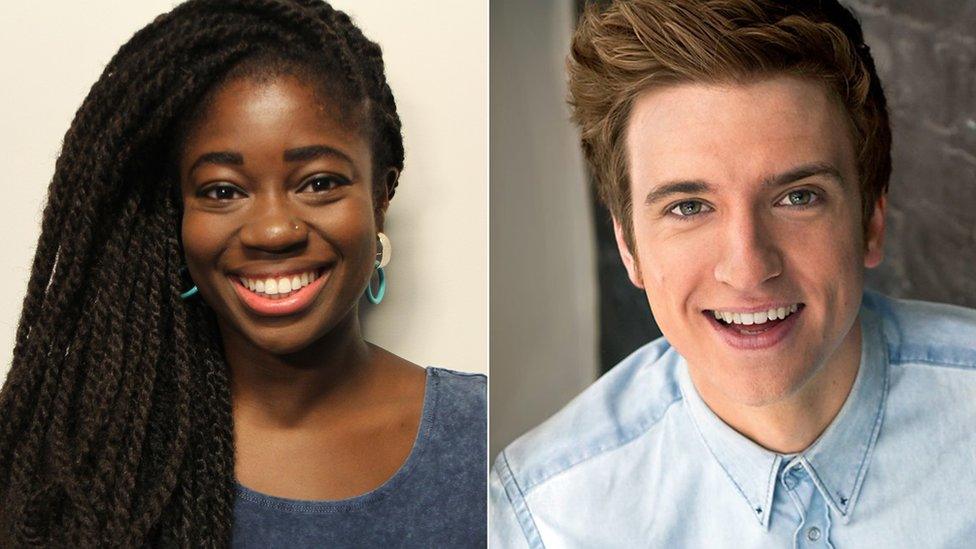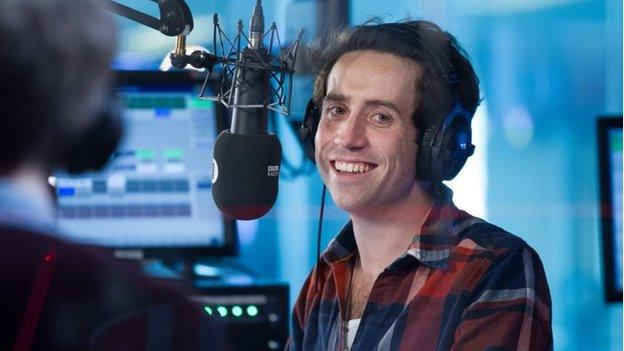Why is Radio 1 losing so many listeners?
- Published

Clara Amfo and Greg James are both part of Radio 1's current daytime line-up
BBC Radio 1's audience has dropped to its lowest level for more than a decade after the station lost a million listeners over the past year.
A million listeners is a big drop. However, quarterly radio listening figures have a habit of bouncing around.
Look over the long term and what's surprising is that in an era of huge technological change, radio listening has stayed so stable overall.
In March 2006, Radio 1 had a weekly reach of 9.9 million listeners aged over 15. In March 2016, it had 9.9 million.
However, there are trends hidden in the figures.
'Generation gap'
The number of hours that 15-24 year-olds listen to radio has gone from 29 million hours in 2010 to 16 million in 2016.
That young audience has dropped from 3.7 million (45%) to 2.9 million (36%).
But why do people care so much about Radio 1's figures?
The BBC worries about it because it is their most successful youth brand and the corporation as a whole struggles to reach young people.
The external attention is harder to fathom. The era of Radio 1 being the most listened-to radio station passed long ago.
The big shift has not been the decline of Radio 1, it has been the rise of Radio 2. In 1999, Radio 2 had 9.6 million listeners - it now has 15.5 million.
Radio 1's success in the 1970s and 80s means that the middle-aged people who are avid consumers of news retain an interest in the one bit of youth culture that they still recognise.
Indeed, Radio 1 has 4.1 million listeners over the age of 35 - and around 800,000 of them are over the age of 60.
It is worth noting that this 4.1 million figure hasn't changed much, even though BBC 6 Music - which is aimed at this older audience - has seen its reach go from 200,000 to 2.27 million.
Around 11 million hours of Radio 1's listening is by people over the age of 45. The problem for Radio 1 is that today's generation gap is more about the way we consume music than the music itself.
No wonder Radio 1's press release wants to point out how many hits the station's channel is getting on YouTube.

Follow us on Twitter @BBCNewsEnts, external, on Instagram, external, or email entertainment.news@bbc.co.uk, external.
- Published4 August 2016
